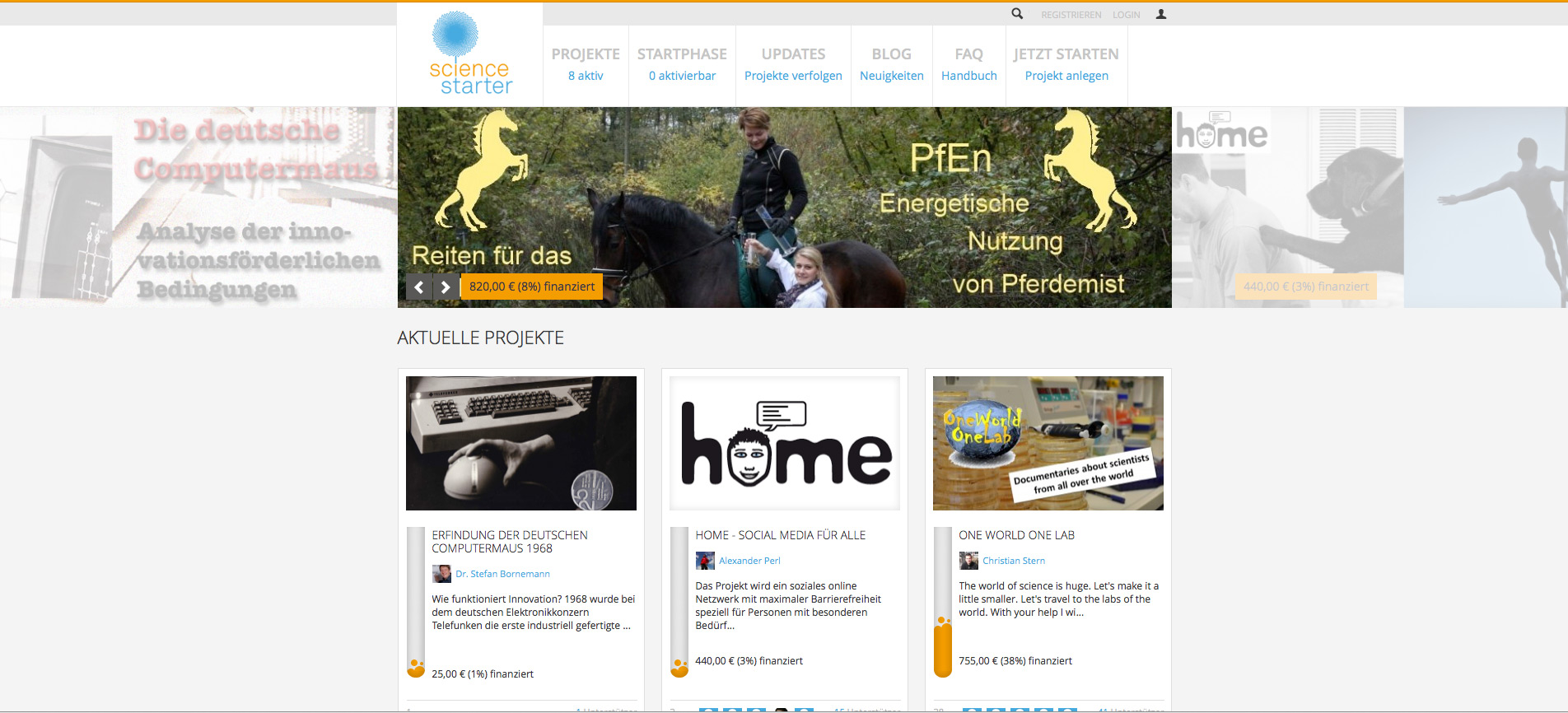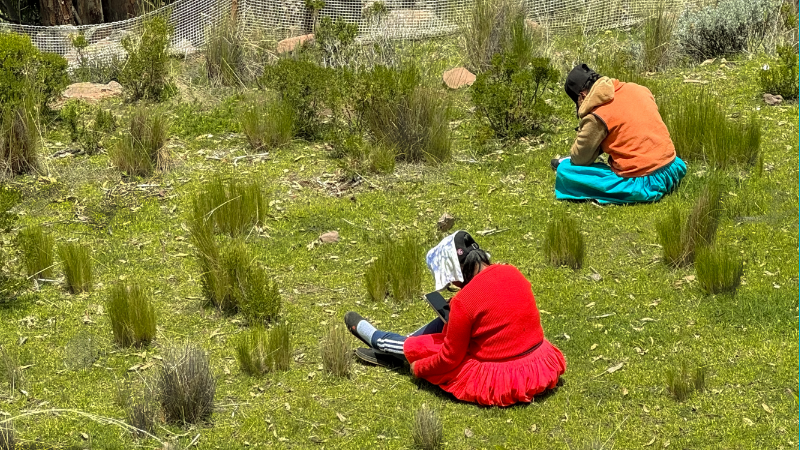Science Crowdfunding: chances and challenges
The web-phenomenon crowdfunding, alongside crowdsourcing, established itself particularly in the realm of creative industries. Meanwhile, this concept expanded into other areas, also into science. Fierce competition for scarce research funds results in scientists looking for alternative means of financing research, including on crowdfunding platforms.
The crowdfunding landscape
While projects with scientific aspirations are mixed in amongst the variety of existing categories on Kickstarter or Indiegogo, RocketHub has a designated area for Science. Moreover, RocketHub initiates the #SciFund Challenge (currently in its third round) which is particularly science-oriented. Platforms such as for instance Petridish, Microryza, iAMscientist or MyProjects (Cancer Research UK) are entirely specialised on science crowdfunding.
Also the German crowdfunding landscape is condensing. Next to Startnext, Inkubato, Visionbakery or Pling, a new platform has been initiated in November: Sciencestarter is the first German-language crowdfunding platform for funding scientific research projects and science communication. Currently there are seven active projects though only One World One Lab, which aims at producing video documantaries about scientists in different parts of the world, stands out having reached 38% of its funding goal with 47 more days to go until the deadline.
Chances
Crowdfunding platforms in the realm of science give projects that do not comply with the categories of existing funding programmes a chance to come into being. Moreover, crowdfunding has the potential to invigorate the dialogue between scientists and the public. Scientists are required to present the research projects in an appealing way, whereas the public has influence on which projects get funded. Furthermore, the supporters gain an insight into the research process.
Challenges
A challenge for science crowdfunding is to find a way to keep the attention of the public beyond funding, meaning to make the research process accessible to the public in the sense of open science, like for instance Sciencestarter aims at doing. The balance between attractive thank-you gifts for sponsors and an insight into the research project for those who are interested, but not financially supporting it, seems to be crucial.
The Crowdsourcing Discovery project by Ethan Perlstein for example, which was successfully financed with $25,460 on RocketHub, promises to upload its data on figshare, to post regular updates on the project’s homepage and to publish the results in an open access journal. Likewise, the already mentioned One World One Lab project tries to satisfy Sciencestarter’s aspirations of fostering science communication by intending to upload all videos on YouTube. The thank-you gifts in the form of a postcard or a DVD with all the videos for more generous sponsors, seem so far to be sufficiently attractive to win over supporters. Nevertheless, whether crowdfunding in the realm of science will establish itself in the long run remains an open question.
This post is part of a weekly series of articles by doctoral canditates of the Alexander von Humboldt Institute for Internet and Society. It does not necessarily represent the view of the Institute itself. For more information about the topics of these articles and asssociated research projects, please contact presse@hiig.de.
Sign up for HIIG's Monthly Digest
and receive our latest blog articles.
Exploring digitalisation: Indigenous perspectives from Puno, Peru
What are the indigenous perspectives of digitalisation? Quechuas in Peru show openness, challenges, and requirements to grow their digital economies.
Diamond OA: For a colourful digital publishing landscape
The blog post raises awareness of new financial pitfalls in the Open Access transformation and proposes a collaborative funding structure for Diamond OA in Germany.
Disinformation: Are we really overestimating ourselves?
How aware are we of the effects and the reach of disinformation online and does the public discourse provide a balanced picture?



